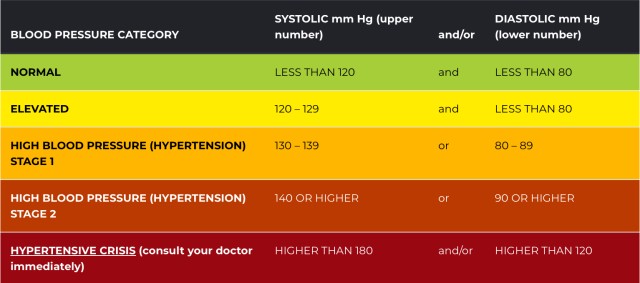This post may contain affiliate links.
Happy February! You know what that means— it’s heart month! And I’m not just talking the big V Day, which, by the way, happens to also be James’ and my anniversary. It’s also American Heart Month. A great time to check in with your heart health and make sure you’re doing what you can to show it some love.

Thankfully, you have a lot of control over how healthy your heart is. But do you really know what you should be doing to keep it healthy? It’s all too easy to have misconceptions based on faulty assumptions, outdated research, and plain old wishful thinking. Let’s boost your heart smarts by setting the record straight on 3 common myths that might be thwarting your good intentions.
MYTH #1:
“I power-walk everyday so I’ve got the exercise part covered.”
THE TRUTH: Powerwalking is a fantastic form of cardiovascular exercise, but it can’t do the job all on its own. It’s a common misconception that cardio training, like walking, jogging, or bicycling, are the only types of exercise we need to do for heart health. However, more recent research shows strength-training is equally as important. Skeletal muscle isn’t just to keep you strong, it also plays a major role in overall metabolic health. Research has found that having a healthy amount of skeletal muscle is protective against metabolic syndrome, a cluster of conditions (like high blood pressure, cholesterol, blood sugar, etc) that increase your risk of heart disease. One way it does so is by being a primary glucose storage site (in the form of glycogen). Having more muscle mass gives you more room for glucose storage. Which ties to yet another myth: that you’re only at risk for Type 2 diabetes if you have high body fat. Nope. Having low muscle mass, even if you’re ‘skinny’, can also put you at risk. And since your muscles only grow when they’re being stressed enough to break down, walking simply isn’t going to cut it.
Really, it comes down to this. All exercise is good for the heart. But when you combine a variety of both cardio and strength, you’ll reap the best possible outcomes. According to the American Heart Association, you should strength-train at moderate to high intensity at least two times per week, and also do 150 minutes of moderate intensity aerobic activity each week. But of course, don’t just stop there. That doesn’t mean you get to sit on the couch and binge-watch Netflix the rest of the day. Those numbers are assuming you’re also getting lots of natural movement in your days, like walking around RV shows (I happen to be writing this in between seminars at an RV show… so it’s the first example that came to mind.)!
MYTH #2:
A glass or two of wine each day is good for my heart.
THE TRUTH: I’m sure you’ve heard it before, that alcohol in moderation is an acceptable vice, potentially even boosting your heart health. Red wine has antioxidants, after all! Turns out the research on this may have been getting misinterpreted, according to a March 2022 study published in JAMA Network Open. After studying the health records of over 370,000 people, the researchers determined that the reason it appears moderate drinking has protective power is because the people drinking moderately engage in other heart healthy habits, like exercising, lower BMI, avoiding smoking, and eating more veggies. Once the authors adjusted the data by removing healthy lifestyle factors, any heart health benefits for both light and moderate drinkers completely disappeared. For example, men who were light and moderate drinkers had a 75% higher risk of coronary artery disease once the other healthy lifestyle factors were eliminated, compared to non-drinkers. Men who drink heavily had a 225% higher risk. So, how much alcohol is a heart healthy amount? Most likely: none.
MYTH #3:
My body is used to getting little sleep, so it’s not affecting my health.
THE TRUTH: You can’t train your body to sleep less than it needs. According to the National Sleep Foundation, healthy adults need between 7-9 quality sleep hours each night. Chronically depriving yourself of that increases your risk of heart disease. In fact, sleep is such an important factor in cardiovascular health that the American Heart Association updated their lifestyle health guidelines (formerly called ‘Life’s Simple 7’) to add sleep as an 8th domain, and renamed the list ‘Life’s Essential 8’.
One of the ways poor sleep affects you is by triggering chronic inflammation, which contributes to plaque formation and hardening of the arteries. A regular lack of sleep can also contribute to higher blood pressure, regardless of age. Obstructive sleep apnea, when your breathing repeatedly starts and stops during sleep, could be contributing to high blood pressure as well. If you snore, or feel tired even after a full night’s sleep, don’t ignore it! Talk with your care provider as sleep apnea is treatable.
So there you go; 3 myths that would be great if they were true, but sadly aren’t. In honor of Heart Month, honor your own heart— consider visiting your care provider for a physical if it’s been a while. Or perhaps think of one small heart-healthy change you can make for the month. It’s never too late to create healthy habits in your life! I can’t think of a more fitting time to start than right now.
Adding more info about Life’s Essential 8 below! Be well, all, and keep doing the work! I know it’s hard, but it’s so, so worth it. YOU are worth it.
❤️ Stef
The American Heart Association’s
Life Essential 8™
Want to Know Your Health Risk? ‘Life’s Essential 8’ identifies the top 8 heart disease risk factors. It’s also part of a measurement tool called ‘My Life Check’. Answer the questions, and you’ll get an overall cardiovascular health score ranging from 0-100, along with suggestions on what you need to do to improve your score. The Essential 8 are:
- Eat Better
Prioritize whole foods, lots of fruits and vegetables, lean protein, nuts, seeds, and cooking in non-tropical oils such as olive and canola.
- Be More Active
Adults should get 2 ½ hours of moderate cardio exercise, and also strength train at least twice per week. But don’t stop there! Get lots of natural movement throughout your days, too.
- Avoid Nicotine Exposure
Use of inhaled nicotine products, including traditional cigarettes, e-cigarettes and vaping, is the LEADING cause of preventable death in the U.S. About a third of U.S. children ages 3-11 are exposed to secondhand smoke or vaping.
- Get Healthy Sleep
Adequate sleep promotes healing and improves brain function. While adults need 7-9 hours each night, kids require more: 10-16 hours for ages 5 and under; 9-12 hours for ages 6-12; and 8-10 hours for ages 13-18.
- Manage Weight
Obesity puts you at risk for heart disease even if you appear otherwise healthy—that is, you don’t have high blood pressure, cholesterol, or diabetes—says cardiologist Chiadi Ndumele from Johns Hopkins. According to Ndumele, controlling your weight is one of the best strategies we know of to reduce heart failure down the road.
- Control Cholesterol
High cholesterol is a condition in which you have too many lipids (fats) in your blood. They can build up in your arteries and combine with other substances to build plaque (fatty deposits). Know your numbers, and work with your healthcare provider to make sure you’re maintaining healthy cholesterol levels.
- Manage Blood Sugar
Most of the food we eat turns into glucose (or blood sugar) that our bodies use as energy. Having too much blood sugar over time can damage blood vessels and the nerves that control your heart. If you’re at risk, make a plan with your care provider to best manage your blood sugar.
- Monitor Blood Pressure
Keeping your blood pressure within acceptable ranges can keep you healthier longer. Levels less than 120/80 mm Hg are optimal. High blood pressure is defined as >130 mm Hg systolic pressure (the top number in a reading) or >80 mm Hg diastolic pressure (bottom number). If you don’t have one already, investing in an at-home blood pressure monitor is a great way to keep an eye on your BP. James and I test ours regularly.












Hi Stef!
Great article! Do you have a recommendation (or video) on a small minimalist exercise equipment setup that would work well for folks in vans and rv’s?
Thx
Jared
Yes! Here’s the equipment we travel with; you really don’t need much at all to get a great workout: https://www.thefitrv.com/fitness-tips/transform-your-rv-campsite-into-the-best-gym-ever/
A great concise and accurate synopsis of the health facts based on research. As a physician I believe more of this information needs to get to consumers. Thank you Steff.
I’m sure you’ve had to correct your own share of health myths from patients over the years; thanks for fighting the good fight!